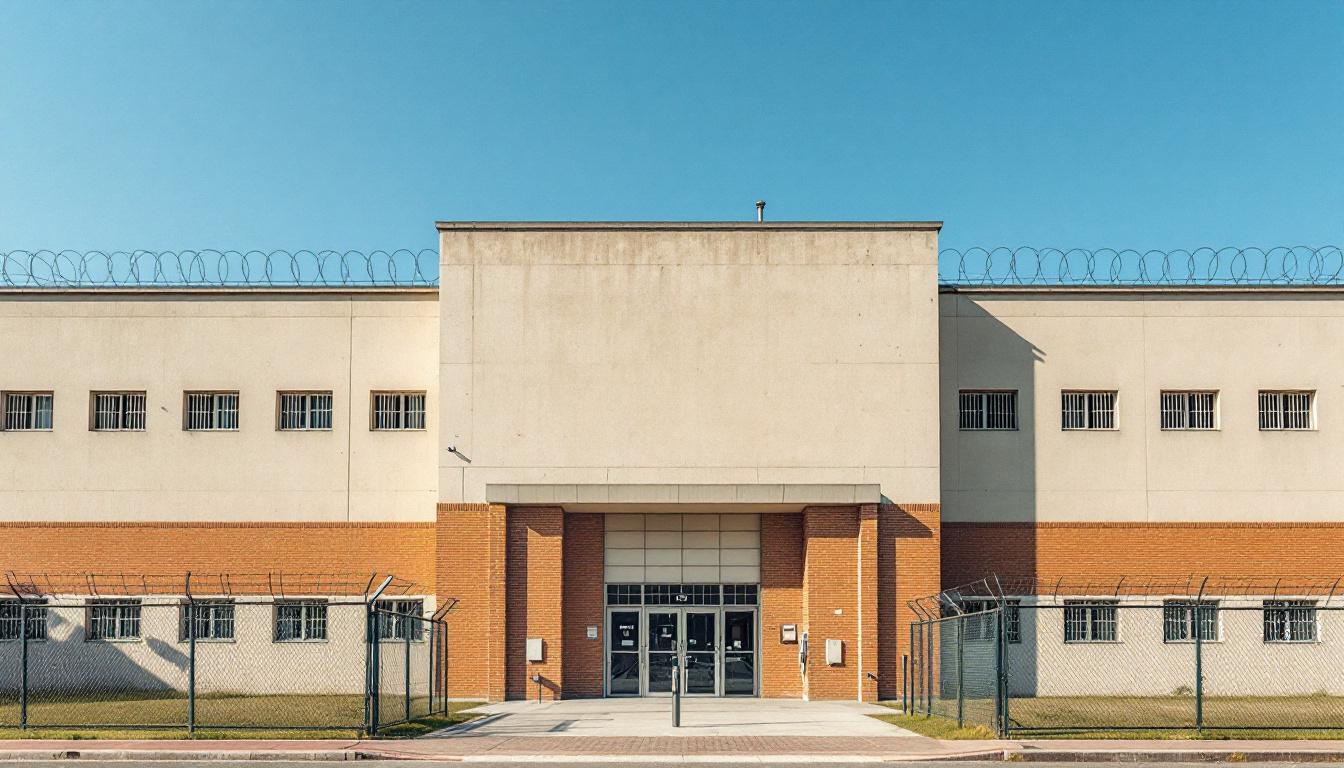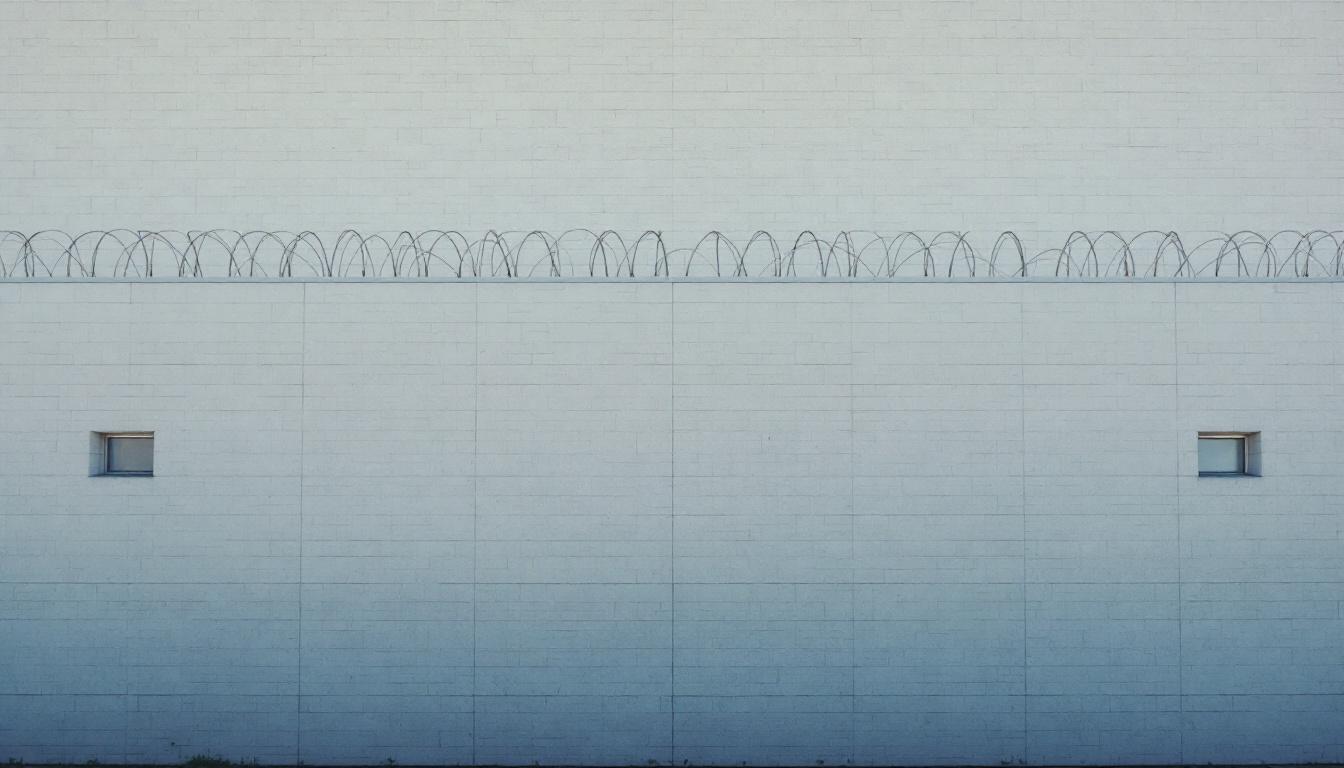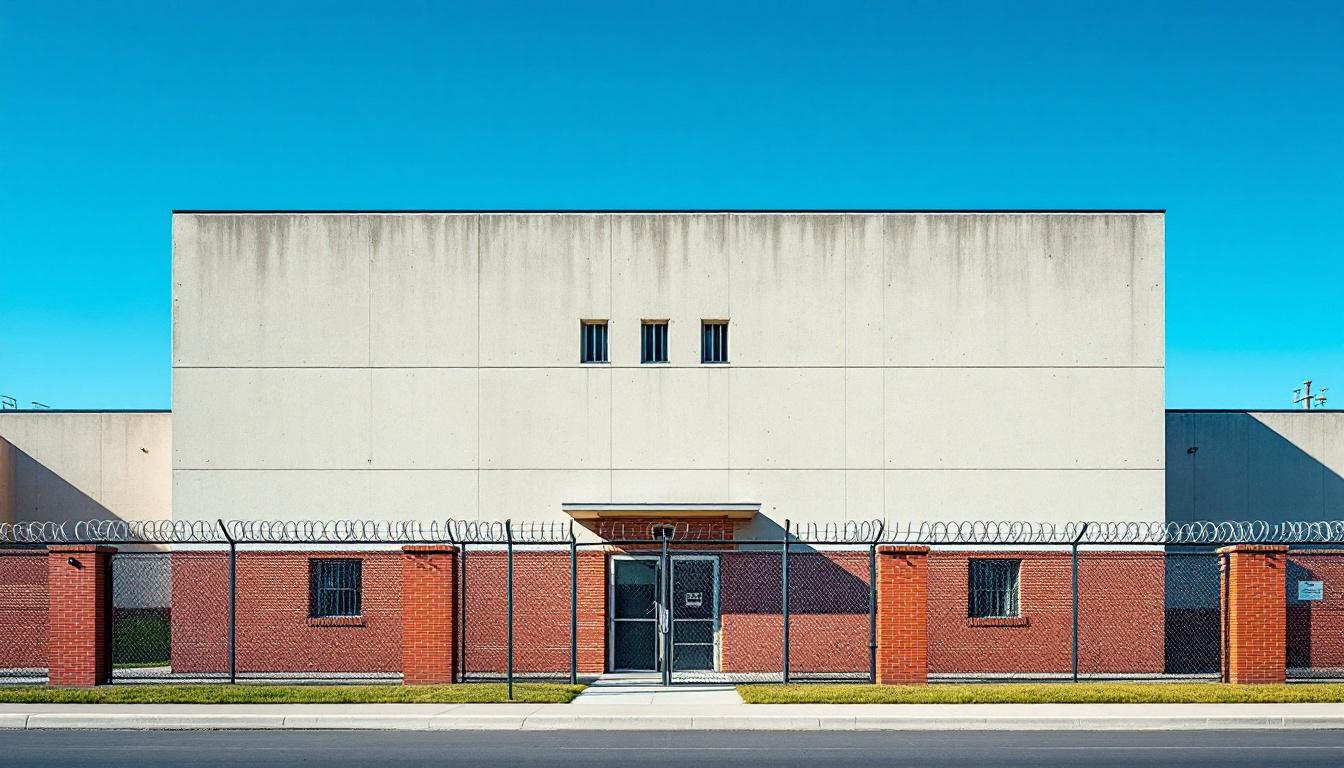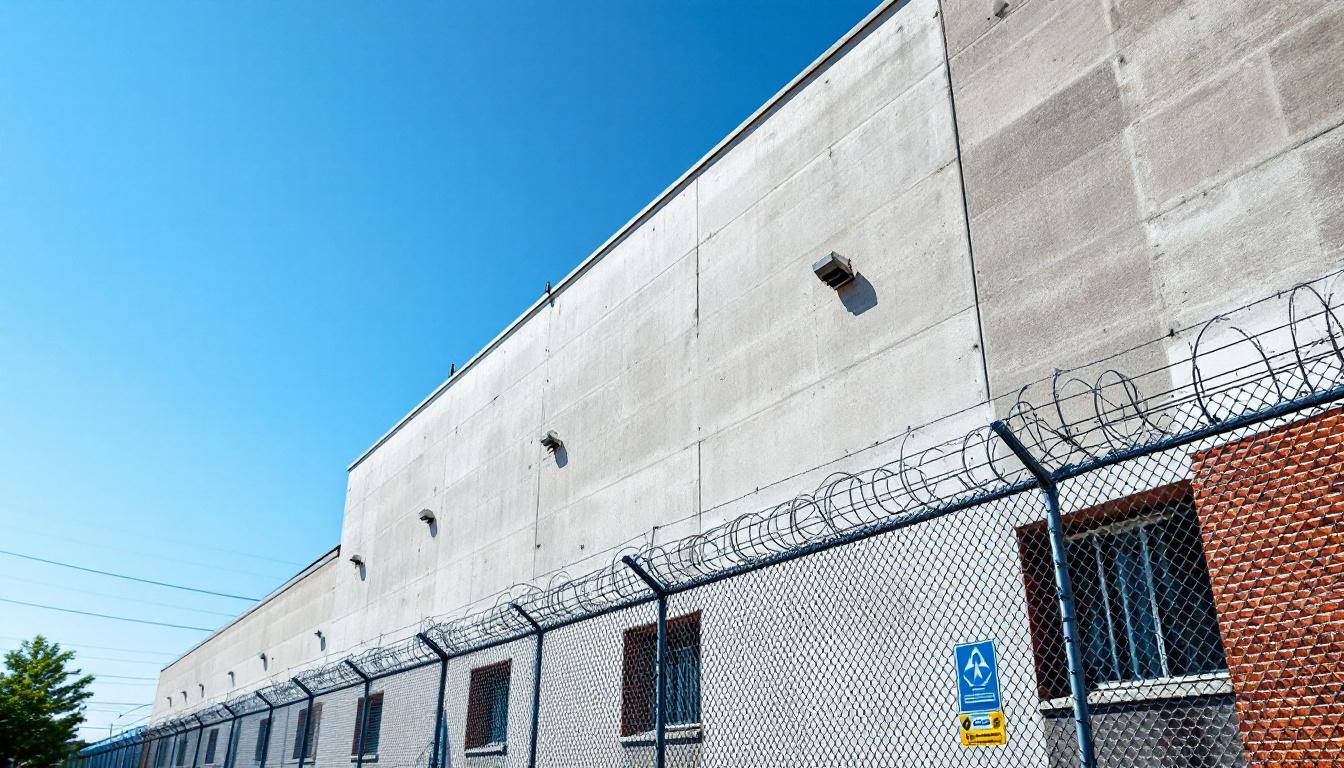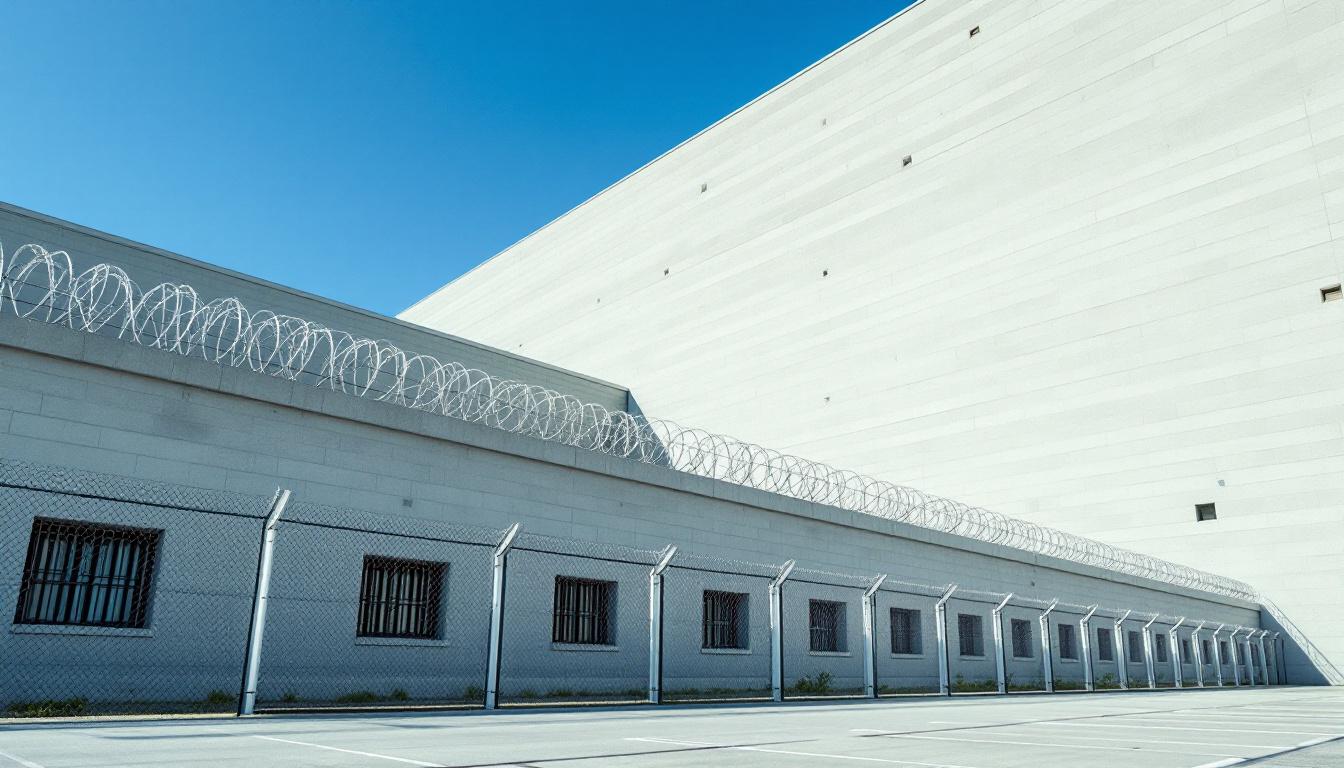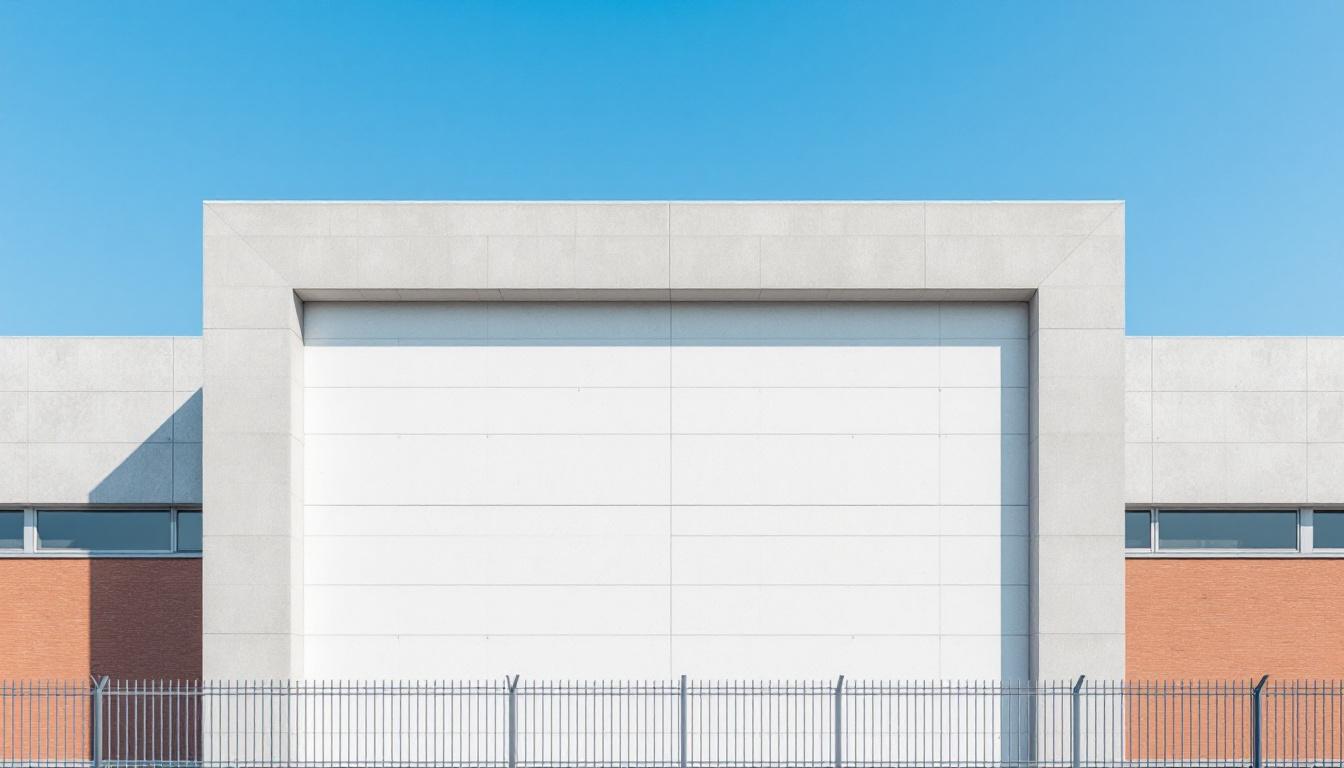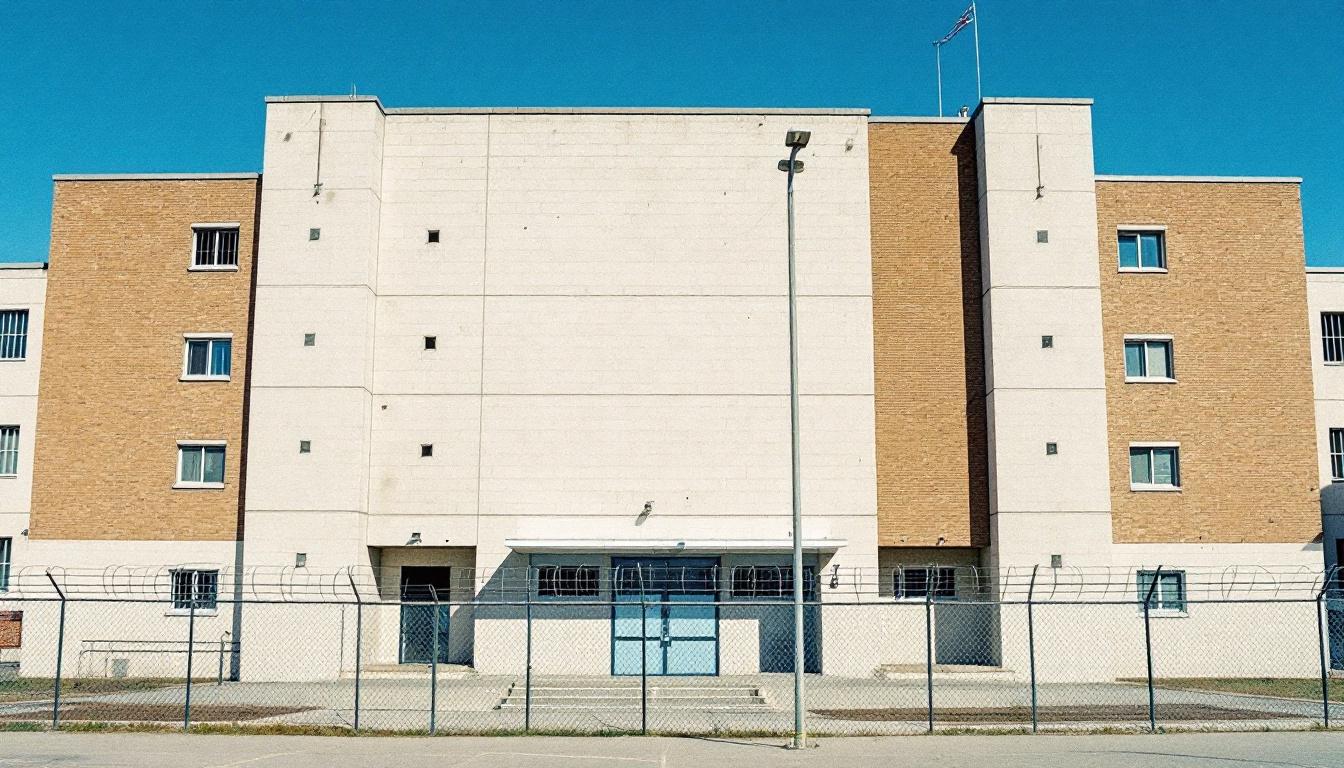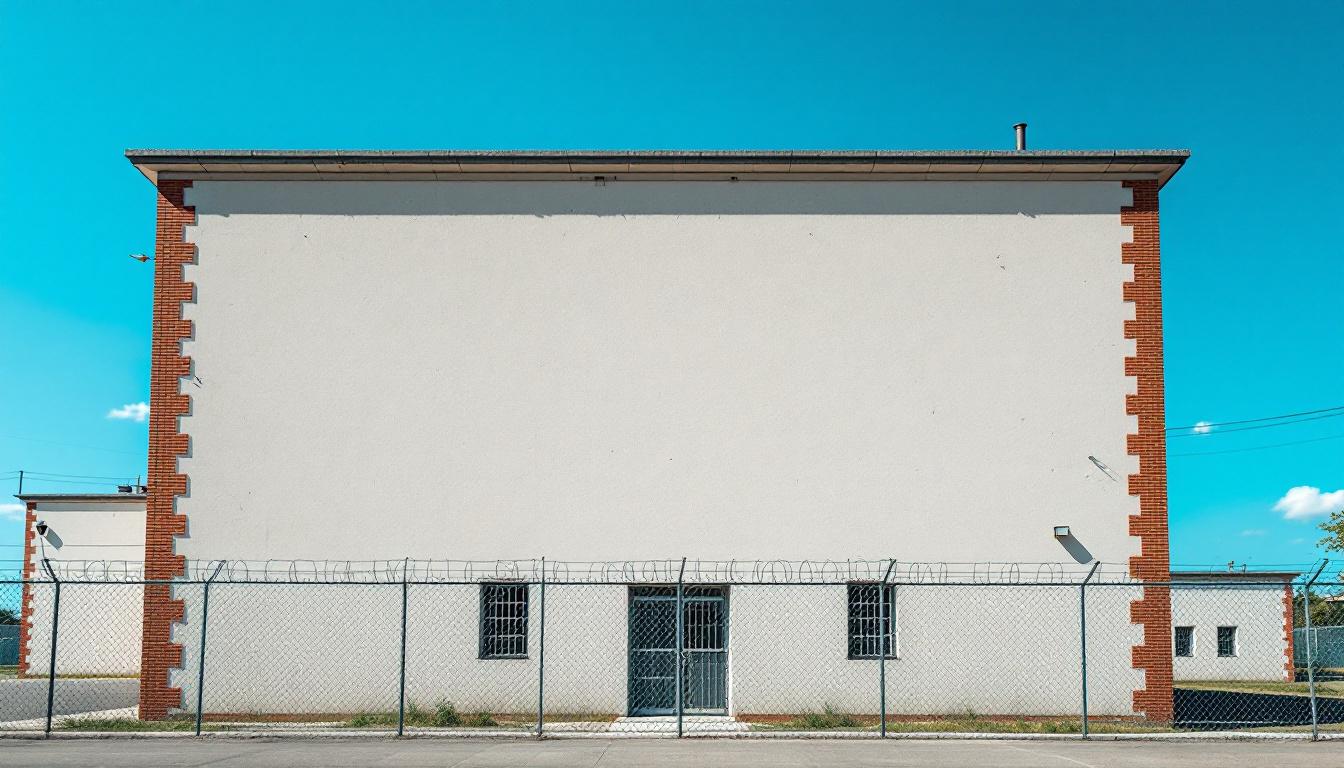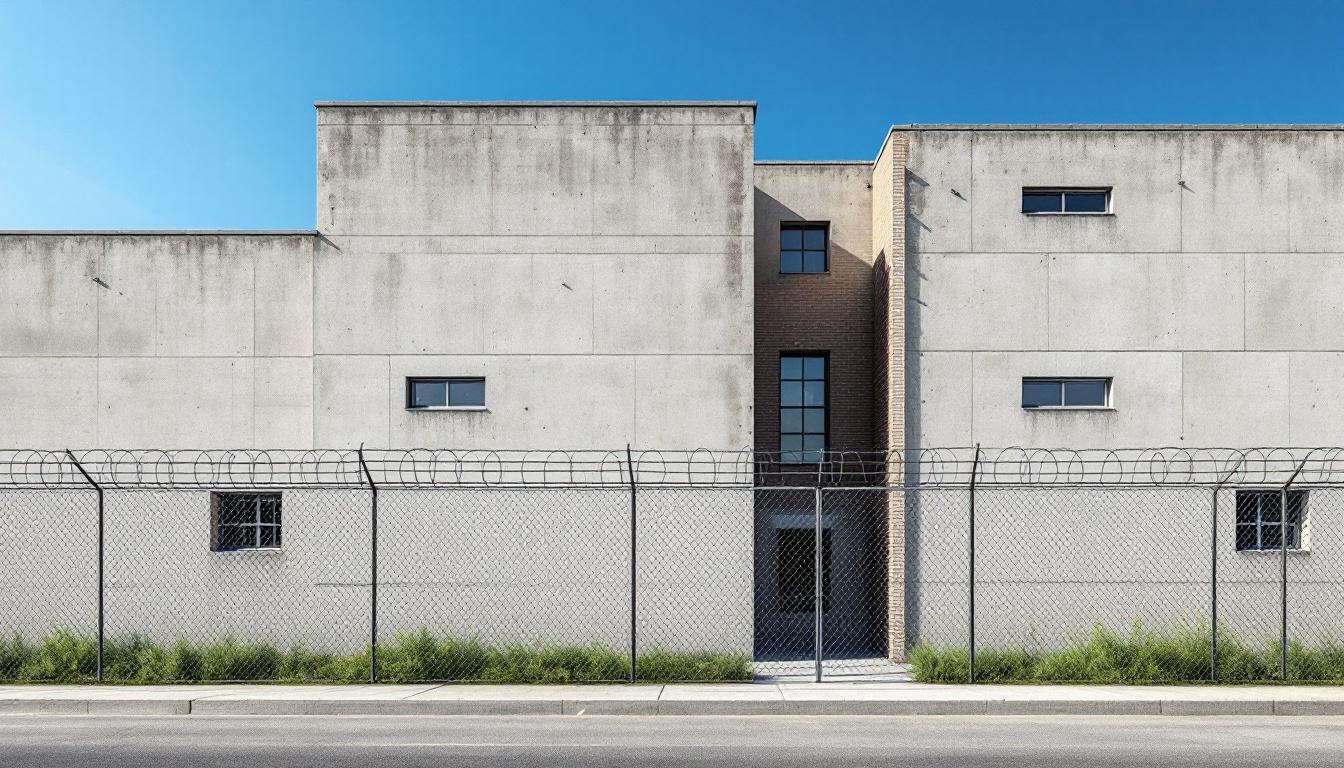
Quick Navigation
How to contact an inmate at Scott County Justice Center
This comprehensive guide will walk you through how to connect with an inmate at Scott County Justice Center. Follow the steps below to find an inmate and send letters and photos:
- Search for the inmate using our search tool below
- Create your account or log in to Penmate
- Write your message (up to 6,000 characters)
- Send instantly - inmates receive printed copies daily
Find an Inmate
Search for an inmate to start communicating today
Tip: You can search by first name, last name, or inmate ID number
To contact a person at Scott County Justice Center start by searching for the person on the official facility website. Perform a search by following these steps:
- Step 1: Enter their first name and last name into the search form and click "Search"
- Step 2: Locate their inmate record
- Step 3: Write down their Inmate ID and any housing information provided
Important! Be sure to enter the person's full name. Nicknames should not be used.
How to Send Messages to Inmates

You can use your phone or computer to send emails, letters, and photos to an inmate. Messages are sent electronically to inmate tablets or kiosks at the facility. If you would like to send a message, start by searching for an inmate at Scott County Justice Center.
Sending Photos and Postcards

A great way to send love and support to a loved one at Scott County Justice Center is to send photos and postcards. It only takes a few minutes to send photos from your phone and it makes a huge difference. You can also mail postcards with words of support and inspiration, or design your own postcard for special moments like birthdays and holidays.
Important! Be sure not to send any explicit photos or they may not be approved by the facility. You can also use a photo printing app like Penmate to make sure your photos are printed at the correct size (4x6 or 3x5) and are mailed according to the rules and regulations of Scott County Justice Center.
Frequently asked questions about Scott County Justice Center
-
How long does it take to deliver a message?
If you're sending an email message your letter is usually delivered within 24-48 hours. For messages sent via mail you should expect delivery within 3-7 days. All messages will need be approved by Scott County Justice Center.
-
How much does it cost to send a message to Scott County Justice Center?
You can send a message free using your phone or mail a message via USPS for the price of a $0.60 stamp and envelope. You can also purchase credits or e-stamps from services starting at $1.99.
-
What services can I use to contact an inmate at Scott County Justice Center?
Penmate
You can use Penmate to send letters and photos to an inmate from your phone. It's an easy way to stay in touch during your loved one's incarceration. Use the inmate locator to find an inmate's location and contact information, then you can send messages within a few minutes.
Securus messaging
Securus may be another option for communicating with an inmate at Scott County Justice Center. You can create a friends and family account and purchase credits to send messages. All messages will be reviewed and must be approved by the facility.
JPay
Some county jails and state prisons may support sending messages with JPay. You must register an account with the system, find your loved one, and purchase stamps to send messages. For some locations you can also attach photos.
Smart Jail Mail
You may also check if Smart Jail Mail is available at Scott County Justice Center. Smart Jail Mail is operated by Smart Communications and has contracted with some state and county jails. After purchasing credits, your messages and photos are sent to the facility, printed out, and then handed out to your loved one.
-
What is the mailing address of Scott County Justice Center?
Mailing address:
Scott County Justice Center
575 Scott High Dr
Huntsville, TN 37756
Phone: (423) 663-3111Business hours:
- Monday: 8:00 AM – 4:30 PM
- Tuesday: 8:00 AM – 4:30 PM
- Wednesday: 8:00 AM – 4:30 PM
- Thursday: 8:00 AM – 4:30 PM
- Friday: 8:00 AM – 4:30 PM
- Saturday: Closed
- Sunday: Closed
-
What are the visiting hours at Scott County Justice Center?
Visiting hours at Scott County Justice Center vary by housing unit and security level. Generally, visits are scheduled on weekends and holidays, with some facilities offering weekday visits. Contact the facility directly at (423) 663-3111 or check their website for the current visiting schedule. Visits typically last 30-60 minutes and must be scheduled in advance.
-
What items are prohibited when sending mail to Scott County Justice Center?
Prohibited items typically include: cash, personal checks, stamps, stickers, glitter, glue, tape, staples, paperclips, polaroid photos, musical or blank greeting cards, hardcover books, magazines with staples, and any items containing metal or electronics. Only send letters on plain white paper with blue or black ink. Photos must be printed on regular photo paper (no Polaroids). Always check with Scott County Justice Center for their specific mail policies.
-
How do I send money to an inmate at Scott County Justice Center?
You can send money to an inmate at Scott County Justice Center through several methods: 1) Online using JPay, Access Corrections, or the facility's approved vendor, 2) Money orders mailed directly to the facility with the inmate's name and ID number, 3) Kiosks located in the facility lobby, or 4) Over the phone using a credit or debit card. Fees vary by method, typically ranging from $2.95 to $11.95 per transaction.
-
Can I schedule a video visit with an inmate at Scott County Justice Center?
Many facilities now offer video visitation as an alternative to in-person visits. At Scott County Justice Center, video visits may be available through services like Penmate, Securus Video Connect, GTL, or ICSolutions. Video visits typically cost $10-20 for 20-30 minutes and must be scheduled in advance. You'll need a computer or smartphone with a camera and reliable internet connection. Contact the facility for their specific video visitation policies and approved vendors.
-
What identification do I need to visit an inmate at Scott County Justice Center?
All visitors must present valid government-issued photo identification such as a driver's license, state ID, passport, or military ID. Minors must be accompanied by a parent or legal guardian who can provide the minor's birth certificate. Some facilities require visitors to be on the inmate's approved visitation list, which may require a background check. Contact Scott County Justice Center for specific ID requirements and visitor approval procedures.
-
How can I find out an inmate's release date?
To find an inmate's release date at Scott County Justice Center, you can: 1) Use the online inmate search tool if available, 2) Call the facility's records department, 3) Contact the inmate's case manager or counselor, or 4) Have the inmate provide this information during a call or visit. For privacy reasons, some facilities only release this information to immediate family members.
Facility Overview
Contact Information
Scott County Justice Center575 Scott High Dr
Huntsville, TN 37756
Phone: (423) 663-3111
Official Website
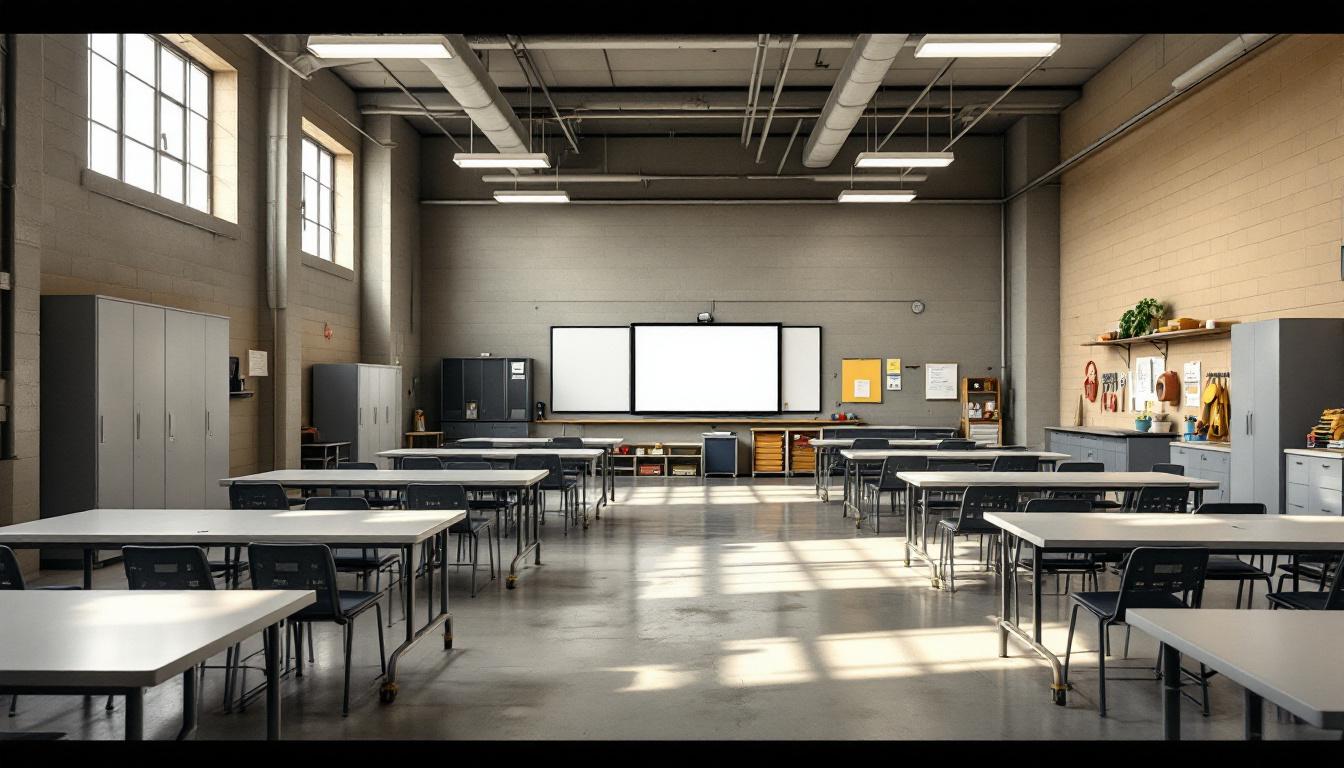
About Scott County Justice Center
Comprehensive programming and individualized support services form the foundation of operations at Scott County Jail, TN, where evidence-based approaches to offender management guide daily interactions with the incarcerated population. Located in Huntsville, this TN correctional facility typically emphasizes structured interventions designed to address the underlying factors that contribute to criminal behavior while maintaining secure custody standards appropriate for a county-level institution.
The facility generally serves individuals awaiting trial, those serving shorter sentences, and persons transferred from other jurisdictions within Tennessee’s broader correctional network. Programming efforts may include substance abuse education, basic educational opportunities, and behavioral modification initiatives tailored to the diverse needs of the population served. Mental health support services are often integrated into the facility’s approach to offender management and support, recognizing that many individuals in custody benefit from therapeutic interventions during their incarceration period.
Scott County Jail’s operational philosophy typically centers on preparing individuals for successful community reintegration through skill development and personal accountability measures. The facility’s location in Huntsville positions it within a regional context where collaboration with local service providers and community organizations may enhance rehabilitation outcomes. Standard county jail services generally encompass medical care, visitation programs, and legal access provisions, all structured to support both immediate custody requirements and longer-term public safety objectives through effective correctional practices.
Programs & Services
The comprehensive array of developmental opportunities within Scott County Jail’s framework reflects a multifaceted approach to individual growth and community preparation. Rather than viewing incarceration merely as containment, the facility typically emphasizes rehabilitation through diverse programming that addresses educational deficits, vocational skill gaps, and personal development needs. This holistic philosophy recognizes that meaningful reintegration requires addressing multiple dimensions of an individual’s circumstances and capabilities.
Educational and vocational opportunities often form the cornerstone of the facility’s comprehensive offerings. Education services may provide individuals with pathways to complete high school equivalency requirements or develop fundamental literacy and numeracy skills essential for future success. Furthermore, vocational programs typically encompass practical skill development in areas such as masonry, where participants can acquire marketable trade competencies. Employment readiness initiatives often complement these technical training opportunities by focusing on workplace behavior, interview preparation, and professional communication skills that enhance post-release employment prospects.
The facility’s support services and therapeutic opportunities typically extend beyond traditional programming boundaries to address personal and spiritual development needs. Individual counseling may offer participants professional guidance in addressing underlying issues that contributed to their circumstances, while faith-based programs often provide spiritual support and community connection for those seeking such resources. Additionally, practical services like laundry operations may serve dual purposes—maintaining facility cleanliness while providing individuals with work experience and responsibility. This comprehensive approach recognizes that successful reintegration requires addressing not dedicated skill development but also personal growth, spiritual wellness, and practical life management capabilities.
Daily Life & Visitation
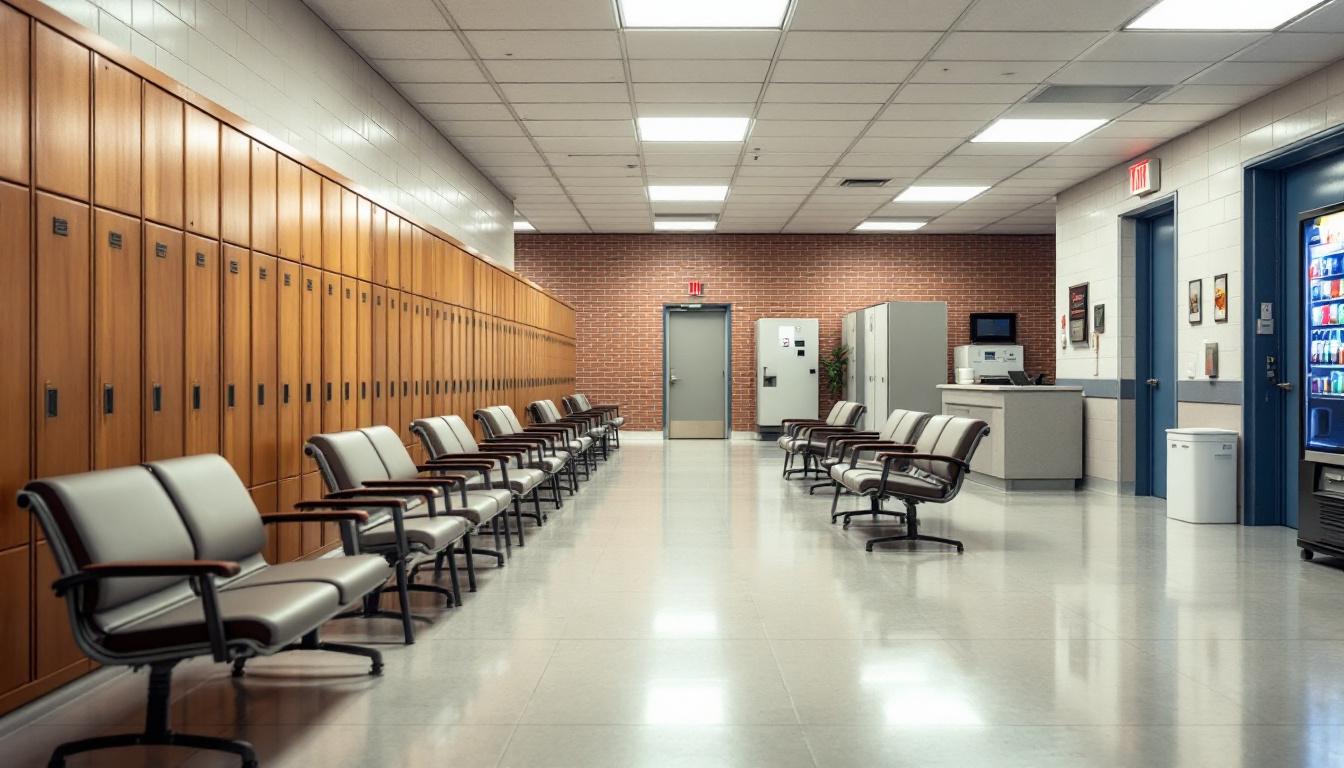
The sound of footsteps echoing through corridors marks the beginning of another structured day, as individuals at Scott County Jail currently navigate a carefully regulated environment designed to maintain order while providing essential services. The facility continues to operate on a systematic schedule that typically begins with early morning counts and meal service, followed by various programming opportunities and work assignments throughout the day. Generally, individuals may participate in educational programs, substance abuse counseling, or vocational training sessions, depending on their classification level and length of stay.
Living accommodations within the facility typically consist of housing units that may range from dormitory-style arrangements to individual cells, with assignments generally based on factors such as security classification, behavior, and available space. Although the environment remains highly structured, individuals usually have access to basic amenities including personal hygiene items, limited personal property storage, and commissary services where they may purchase approved items. Furthermore, the facility often provides recreational opportunities such as television viewing areas, library access, and scheduled exercise periods in designated areas, offering some respite from the otherwise regimented daily routine.
Programming schedules typically offer various structured activities aimed at rehabilitation and skill development, which may include religious services, life skills classes, and group counseling sessions. Family connections remain an important aspect of daily life, with the facility generally providing visitation opportunities and telephone access according to established schedules and security protocols. Although communication with loved ones may be limited by facility policies and security requirements, these connections often serve as crucial support systems for individuals during their time at the facility, helping to maintain important relationships and prepare for eventual reintegration into the community.
Ready to Connect?
Start communicating with your loved one today
Search for an Inmate
